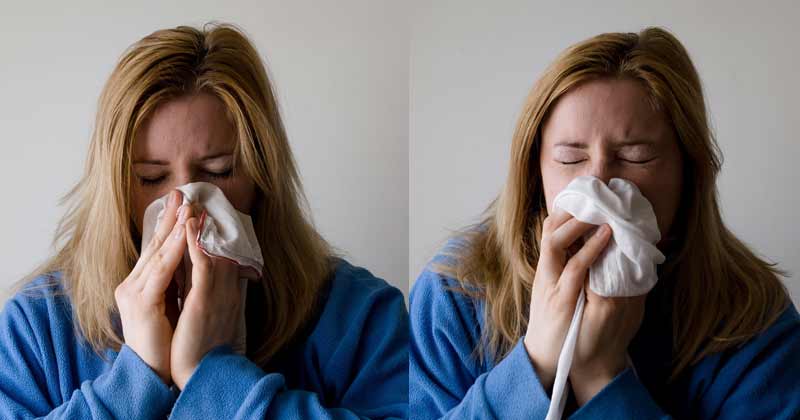Today we indeed live healthier than our ancestors, but with the technical and industrial development, many new diseases have arisen, and some old diseases have become more aggressive and dangerous. On the one hand, many incurable diseases can be cured today, and on the other hand, we have invented more new diseases. But why do we get sick? Why do we fall ill even if we have more than sufficient to eat? Let’s find out.
Illness is defined as a disruption of physical and psychological functions. The functions of life also include behaviour and emotions. It means we get sick when something upsets our body. The reason why do we get sick is, therefore, a reaction, often a defence mechanism of our body against a foreign attack.

External symptoms usually manifest a disease. These symptoms are significant as they make it clear to us that something is wrong and that something should be done to regain physical balance.
Many diseases can be psychological and are caused by stress, negative thoughts, fear, poor lifestyle, accidents, lack of exercise, side effects of medications, viruses and bacteria, environmental toxins, heavy physical exertion and poor nutrition.
Nutrition, in particular, together with mental attitudes, plays a vital role in the development and elimination of diseases. With the proper and nutritious diet, we can fight many diseases in advance even before they arise, or we can quickly eliminate them before they show symptoms. It also means that the wrong diet and lousy food can also promote illness.
Capabilities of Our Immune System
People are so susceptible to certain diseases, while their bodies can cope fantastically with other health threats. The human body has continuously adapted to changing environmental conditions. Evolution shaped us. Our current appearance corresponds to the dangers to which we have been exposed for thousands of years.
Only the genetic traits that were of the best value to us survived. Our immune system has learned to defuse poisons, destroy viruses and bacteria, and heal injuries. There is another reason why do we get sick.

All the perfection that our immune system developed, it could not prevent the attackers, the numerous parasites, which naturally regard the human body as a host, from adapting.
They have developed strategies to sneak in unnoticed, camouflage themselves or manipulate body cells in such a way that the immune system does not recognize the intruder. HIV is an excellent example of this.
What We Call Sickness Can Be Defence
The human immune system cannot change as quickly as new mutations of previously known pathogens appear. To compensate for its evolutionary slowness, however, it has designed some underlying defence mechanisms with which it tries to render the attacker harmless.
So while it can’t prevent that, the novel variant of last year’s flu virus spreads in the body, but at least try to limit its multiplication. It includes, for example, the painful cough. It is used to remove foreign bodies from the lungs before they can nest there and cause damage.

The nose runs to rinse invaded viruses and bacteria from the sensitive mucous membranes before they can multiply explosively there. Fever is increasing the body temperature that leads to increased mobilization of the body’s Defence to the killing of the attackers.
All sicknesses like running nose, coughing and fever are carried out by our immune system, and that is why we fall ill. In people suffering from allergies, the body’s security measures seem to be pushing beyond the goal.
Suggested Read: Why Do We Yawn?
The immune system goes haywire as soon as certain flowers and grasses bloom. But why do we fall ill because of a harmless herb? Medical science has no answer to this.
As soon as the immune system detects the antihistamines, it begins to fight the symptoms without asking what they are supposed to protect against, because there is no question that it is a protective mechanism. So far, people have tried to explain allergies with hypersensitivity.
We are not designed at all for modern life. We are hunters and gatherers who walk in a small group and feed on a low-fat, varied diet. Not only our bodily functions are programmed for this way of life, but also our behaviour. If there is any change in our lifestyle, our immune system gets hypersensitive, and that is why we fall ill.


